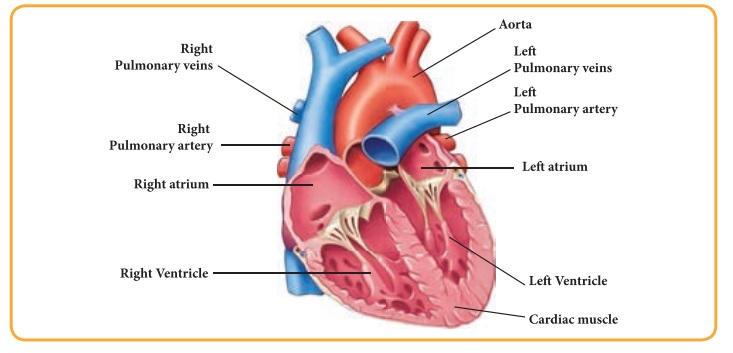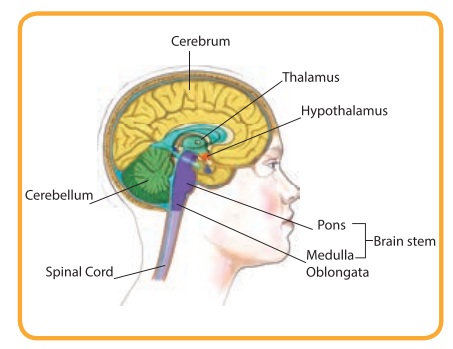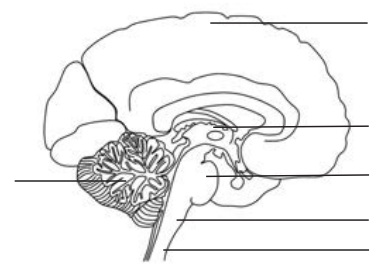Organ Systems | Term 1 Chapter 1 | 5th Science - Questions with Answers | 5th Science : Term 1 Unit 1 : Organ Systems
Chapter: 5th Science : Term 1 Unit 1 : Organ Systems
Questions with Answers
Organ Systems ( Term 1 Chapter 1 | 5th Science )
Evaluation
I. Choose the correct answer.
1.
What is the length of the alimentary canal?
a) 3-5 m
b) 5-6 m
c) 9-11 m
d) 6-9 m
Answer: d) 6-9 m
2.
Which organ is involved in respiration?
a) Kidney
b) Lungs
c) Heart
d) Brain
Answer: b) Lungs
3.
How many kidneys do we have?
a) 2
b) 3
c) 1
d) 4
Answer: a) 2
4.
Functional unit of brain is
a) Neuron
b) Nephron
c) Brain stem
d) Nerves
Answer: a) Neuron
5.
Blood is bumped by
a) Lungs
b) Heart
c) Kidneys
d) Bones
Answer: b) Heart
II. Fill in the blanks.
1. A group of organs together make up an
organ
system.
2. The process by which the body removes
waste is called excretion.
3. The number of chambers in human heart
is four.
4. The functional unit of kidney is nephrons.
5. The human nervous system is divided
into two
parts.
III. Say True or False.
1. In human respiratory system, length
of trachea is 8-10 cm.
2. The circulatory system is made up of
the heart, blood and blood vessels. (True)
3. Important function of the heart is to
transport blood with nutrients, oxygen, waste and hormones. (True)
4. The brain is protected by the rib
cage. (False)
5. The functional unit of kidney is
neuron.
(False)
IV Circle the odd one.
1. a) Mouth b) Buccal cavity c) Pharynx d) Lungs
2. a) Nostrils b) Nasal cavity c)
Pharynx d)
Stomach
3. a) Mouth b) Esophagus c) Stomach d) Kidney
4. a) Taste b) Hear c) Think d) Smell
5. a) Cerebrum b) Cerebellum c) Medulla
Oblongata d)
Nephron
V Match the following.
Digestive System - Kidney
Respiratory system - Brain
Circulatory system - Alimentary canal
Excretory system - Heart
Nervous System - Lungs
Answer:
Digestive System : Alimentary canal
Respiratory System : Lungs
Circulatory System : Heart
Excretory System : Kidney
Nervous system : Brain
VI. Answer briefly.
1.
Name the salivary glands in our mouth?
1) The parotid
2) The sublingual glands
3) The submandibular
2.
What is respiration?
Inhaling fresh air into the lungs
and exhaling impure air from the lungs is called respiration. The respiratory system
provides oxygen to the tissues of the body and removes carbon dioxide from the
tissues.
3.
What is the function of pericardial fluid?
The heart is covered with double
walled membrane called pericardium. The space between the membranes is filled
with pericardial fluid. The pericardial fluid protects the heart from shock.
4.
Name the chambers in human heart?
The heart is divided into four
chambers. Two upper chambers are called atria or auricles. Two lower thicker
chambers are called ventricles.
5.
Arrange the excretory system in correct sequence.
(Urinary
bladder, Ureter, Kidney, Urethra).
Kidney → Ureter → Urinary bladder →
Urethra
6.
What are the two parts of peripheral nervous system?
Peripheral nervous system is made up
of two parts.
1. Somatic nervous system
2. Autonomous nervous system
7.
What are the functions of blood?
Blood transports nutrients, oxygen,
wastes and hormones. It regulates water level and the body temperature. Blood
is pumped through out the body by the heart. It takes oxygen to tissues and
cells and finally reaches the lungs to take oxygen again.
VII. Answer in detail.
1.
List out the functions of the digestive system.
The food we eat consists of complex
compounds like carbohydrates, proteins and fats. They have to be converted into
simpler molecules like glucose, amino acids, fatty acids and glycerol
respectively. These simpler molecules are then assimilated either by blood or
lymph in order to give us energy. The process of conversion of complex food
molecules into simpler molecules is called digestion.
2.
Explain the main parts of the circulatory system.
Heart: The heart is a hollow, muscular
organ. It is somewhat conical in shape. It is covered with double walled
membrane called pericardium. The space between the membranes is filled with
pericardial fluid. The pericardial fluid protects the heart from shock. Heart
is placed inside the thoracic chamber (rib cage) in between the two lungs.

The heart is divided into four
chambers. Two upper chambers are called atria or auricles. Two lower thicker
chambers are called ventricles. The upper and lower chambers of the heart are
separated by a muscular wall or tissue known as the auriculo-ventricular septum
of the heart. The right side of the heart receives deoxygenated blood from
various parts of the body and pumps it to the lungs for oxygenation. The left
side of the heart receives oxygenated blood from the lungs and pumps it into
different parts of the body.
Blood : Blood transports nutrients,
oxygen, wastes and hormones. It regulates water level and the body temperature.
Blood is pumped throughout the body by the heart. It takes oxygen to tissues
and cells and finally reaches the lungs to take oxygen again.
Blood Vessels: Blood vessels
consist of arteries and veins. Arteries carry oxygenated blood (except
pulmonary arteries which carry deoxygenated blood from the heart) and veins
carry deoxygenated blood (except pulmonary' veins which carry oxygenated blood
to the heart)
3.
Explain three major parts of human brain.
Human brain is divided into three
major parts.
• Fore Brain (Cerebrum)
• Mid Brain (Cerebellum)
• Hind Brain (Medulla Oblongata)
Fore Brain (Cerebrum)
© The forebrain consists of
cerebrum, thalamus and hypo thalamus.
© It is the largest part of the
brain.
© It is the centre of human memory.
© It is responsible for
intelligence, imagination and reasoning.
Mid Brain (Cerebellum)
❖It lies behind the cerebrum.
❖ It co-ordinates the movements of the muscles of the body.
❖It helps to maintain the balance of the body.
Hind Brain (Medulla Oblongata)
• The hindbrain comprises pons and
medulla oblongata.
• It is also called the brain stem.
• It is called "Vital
Knot" because it controls breathing, heart beat and other involuntary
muscles.
• It connects the brain to the spinal
cord.

4.
Label the diagram given below.


VIII. Questions based on higher order
thinking (HOT).
1.
Why it is important to wear helmet while riding a bike?
Accidents which happen while riding
a bike cause head injuries. These head injuries are fatal and cause death. In
order to protect the head and brain from head injuries one should wear a helmet
while riding a two-wheeler.
2.
Eating fast-food and junk food affects our health. Justify.
Fast food and junk food don't have
fruits, vegetables or fibre content. Eating this food causes obesity,
depression, heart diseases, diabetes-type 2, cancer and early death. As fast
food and junk food are harmful to our health we should avoid eating them.
Activity 1
Sit quietly and count how many times you breath per minute. On an average, we breath 16-18 times per minute. Can you guess the number of times you breath in a day? On an average, we breath more than 20,000 times in a day.
Activity 2
Locate your pulse points either on wrist or neck. Place your right index and middle finger on the palm side of your left wrist. On the neck the pulse point is located beneath the ear and jaw bone. Count the number of beats for 15 seconds. Multiply this by four (15 * 4 = 60). This shows how many times the heart beats in one minute.
Related Topics